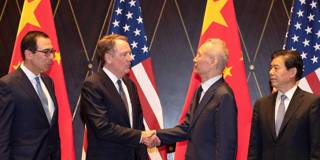Like the twentieth-century Cold War between the United States and the Soviet Union, the new rivalry between China and the West is a contest between fundamentally incompatible political systems. And the idea that freedom and democracy will prevail can no longer be taken for granted.
BERLIN – With the 30th anniversary of the fall of the Berlin Wall approaching, the issue of freedom has returned to the fore in Moscow and Hong Kong, albeit under very different historical and political circumstances. We are reminded that the modern era was built on freedom, and on the recognition that all people are born equal. This radical Enlightenment idea, when it took hold, constituted a break from all previous history. But times have changed. In the twenty-first century, we are confronted with a fundamental question: Could a modernized form of authoritarianism represent an alternative to liberal democracy and the rule of law?

BERLIN – With the 30th anniversary of the fall of the Berlin Wall approaching, the issue of freedom has returned to the fore in Moscow and Hong Kong, albeit under very different historical and political circumstances. We are reminded that the modern era was built on freedom, and on the recognition that all people are born equal. This radical Enlightenment idea, when it took hold, constituted a break from all previous history. But times have changed. In the twenty-first century, we are confronted with a fundamental question: Could a modernized form of authoritarianism represent an alternative to liberal democracy and the rule of law?